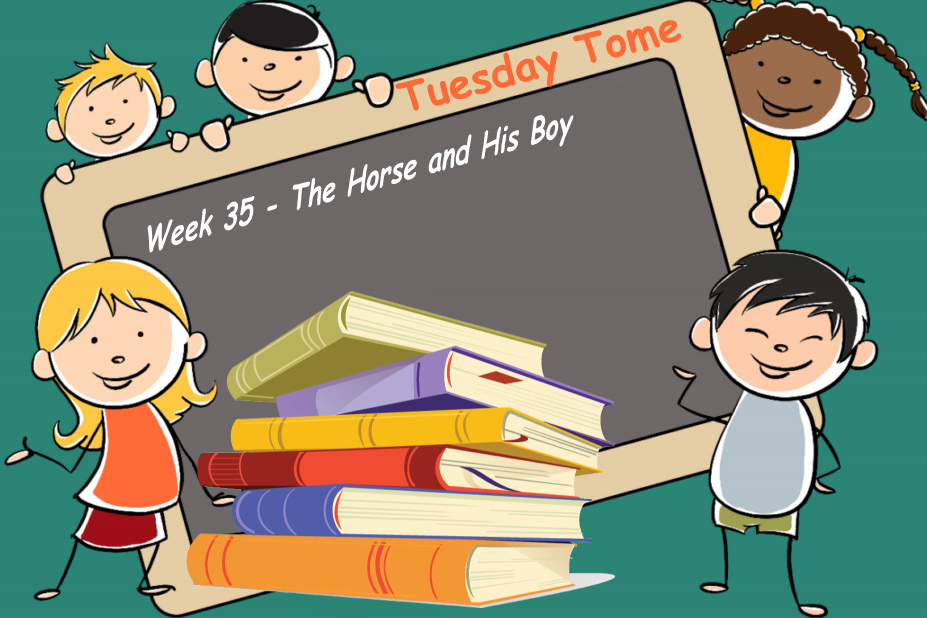Volume 3 in The Chronicles of Narnia by C. S. Lewis, The Horse and His Boy was a completely unknown book to me. How sad! This book has fed me so much since we read it with the children. We also listened to it in radio theater form from Focus on the Family.
Shasta is an orphan boy raised by a cruel man, who ends up running away to Narnia on a talking horse. So now you know who the characters in the title are. The books presents several other memorable characters as Shasta meets friends and foes on the way to his new destiny.
The most memorable quote in this volume for me was something Aslan says to Shasta and, later, to Aravis. Shasta wanted to know why Aslan hurt Aravis. Aslan replies, “I only tell you your story, not hers. Nobody gets told anybody else’s story but their own.”
In another place, Aravis finds out that Aslan clawed her back because she needed to experience what her servant girl had to experience for having helped her flee. Aravis knew that she was just using this servant. She knew they would flog the girl once they realized she had helped Aravis take her flight from a planned marriage.
And Aravis did not care. This servant girl used to work for Aravis’ step-mother and had given Aravis a hard time once or twice before. It was Aravis’ way to take revenge. Well, Aslan showed her. We don’t take revenge. We let the lion do the revenge for us. It’s always better. So he clawed her.
After Aravis understood, she wanted to know what happened to the servant girl afterwards. Aslan replies, “Child, I am telling you your story, not hers. Nobody gets told anybody else’s story but their own.”
When you look at somebody’s life and you see something going amiss, you start speculating. But you don’t know. And you should not want to know. Everybody has their own story with Aslan. And even if we think we know why bad things happen to good people or why good things happen to bad people, we actually don’t.
It’s liberating. It’s a relief. I don’t have to figure out why there is conflict in the world or in my friends’ lives. Aslan – a symbol of Christ – is in charge. He knows. He is handling it even as I wonder about it. And I just need to rest in the assurance that their story is in good hands. I don’t need to understand it. I can pray for them, I can help them if they seem to need help or if they ask for help, but that’s about it.
Of course, the book has a wonderful plot and great descriptions and it makes for an exquisite reading choice. The children love it and even if they don’t get all the Christian nuances and allegories, they get exposure to wonderful writing.
